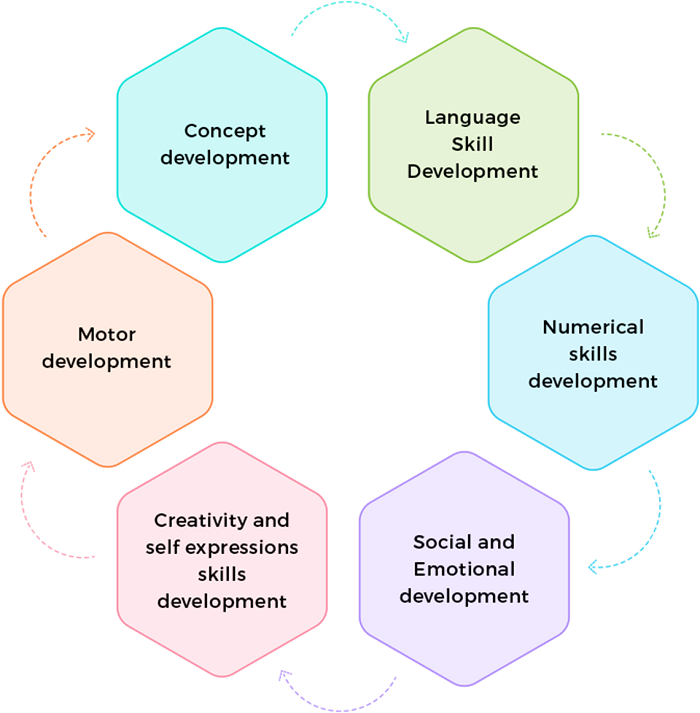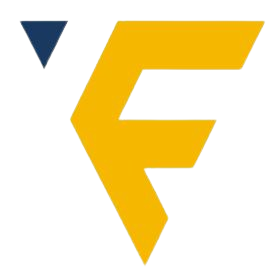Structure Of Our Curriculum

Primary school years are the crucial years that lay a foundation to a life-long journey of learning, hence aptly called as the Early Years Foundation Stage. The curriculum focuses on play-way method with the epicenter being the key areas of learning: physical, personal, social and emotional development; literacy skills; numeracy skills; understanding the world through enquiry; and expressions through art, music and dance. The curriculum provides a balance of daily teacher-directed activities and child-directed activities that make learning fun.
We follow four guiding principles for curriculum development:
- Connecting knowledge to life outside the school.
- Ensuring that learning shifts away from rote methods.
- Enriching the curriculum so it goes beyond text books.
- Making examinations more flexible and integrating them with classroom life.
Children learn and develop through:
- A number of informal methods like activities, projects, presentations and hands-on experiences, apart from formal learning;
- Activities like free play, dramatization, enacting through puppets, singing, dancing, cooking, art, and so on;
- Oulioor and indoor play and games;
- Sharing ideas with other children and discovering facts for themselves through observation and reference work;
- Exciting experiential learning opportunities through field trips which are planned for specific educational purposes;
- Exploring and reading books, newspapers and magazines, thus enhancing their knowledge and inculcating in them an interest to be learning-oriented while appreciating the value of reading and research;
- An appropriate balance of whole group, small group and individual activities, which cater to individual differences in learning;
- An inter-disciplinary appreciation of Language, Mathematics, Social Studies and Science by learning as individual subjects as well as in an integrated way;
- Physical education, which improves health and fitness, while enjoying the recreational value it offers;
- Exposure to team and individual sports, competitive and non-competitive, which encourages sportsmanship and a school-wide community spirit and a feeling of individual accomplishment;
- The ICT Computer Course, which introduces students to the concept and reality of information and communication technology and provides a framework in which practical skills and knowledge can be acquired and developed;
- A supportive learning environment where individual needs are addressed in a positive and inclusive way;
- Opportunities in Dance, Fine Arts, Theatre, Western and Indian Music, Speech and Drama and Yoga, which facilitate a well-rounded development. These are part of the regular curriculum, and are also being offered as co-curricular and core activity programmes.
- Participation in co-curricular activities, which are held on Saturdays for one hour. Students who show special interest or are specially talented in any sporting or non-sporting areas are offered further opportunities through the core activity programme, so that they are able to excel in such areas and also enhance their readiness to take part in competitions and tournaments outside of school;
- Celebration of the changing rhythms of the year through a variety of festivals and activities. These are celebrated through whole-school assemblies, play performances, special holidays and functions, which help children in meaningful bonding and appreciation of such festivals.

